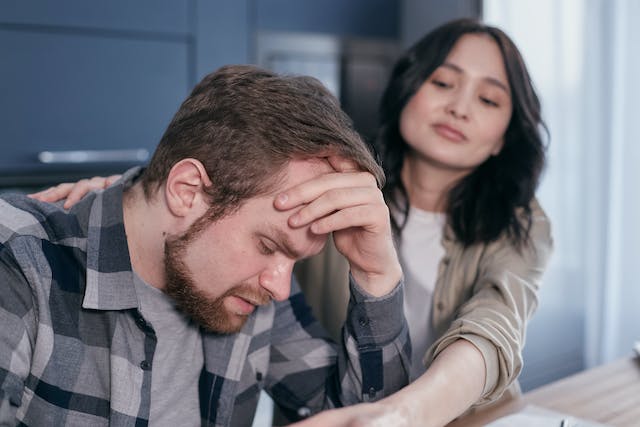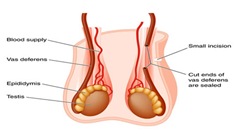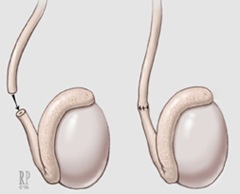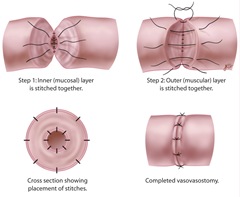Deciphering Post-Vasectomy Pain Syndrome (PVPS)
Following a vasectomy, most men enjoy its benefits without complications. However, a small percentage may experience a persistent discomfort known as Post-Vasectomy Pain Syndrome (PVPS). In this blog, we’ll delve into the intricacies of PVPS, examining its origins, symptoms, and potential management strategies.

Defining Post-Vasectomy Pain Syndrome (PVPS)
PVPS is characterized by chronic or intermittent testicular pain that occurs after a vasectomy. Although PVPS is relatively rare, for those who do experience it, the pain can be distressing. Key points to consider:
- Causes: The exact causes of PVPS remain unclear. It may arise from inflammation, nerve damage, or other factors.
- Symptoms: PVPS typically involves persistent, unexplained pain or discomfort in the testicles or groin area.
- Duration: Symptoms can manifest immediately after the vasectomy or develop months to years later.
Diagnosis and Evaluation
Diagnosing PVPS can be complex, as there are no specific tests for the condition. Instead, doctors rely on comprehensive assessments, including:
- Medical History: A thorough discussion of symptoms and medical history.
- Physical Examination: A detailed physical examination to evaluate the affected area.
- Exclusion of Other Causes: The elimination of other potential sources of testicular pain, such as infection or injury.
Management and Treatment
Managing PVPS often requires a multifaceted approach:
- Pain Management: Over-the-counter pain relievers or prescribed medications may help alleviate discomfort.
- Anti-Inflammatory Medications: Medications with anti-inflammatory properties can target any inflammation contributing to the pain.
- Nerve Blocks: In certain cases, nerve blocks or injections may provide temporary relief.
- Surgical Interventions: If conservative treatments prove ineffective, surgical options to block or remove affected nerves may be considered.
Coping Strategies
Coping with PVPS can be challenging, but there are strategies that can aid in the process:
- Professional Support: Seek guidance from healthcare professionals experienced in managing PVPS.
- Emotional Support: Consider speaking with a therapist or participating in a support group to address the emotional impact of chronic pain.
- Lifestyle Adjustments: Incorporate gentle exercise, stress management techniques, and relaxation methods into your daily routine to enhance overall well-being.
Seeking Relief and Support for PVPS
Post-Vasectomy Pain Syndrome is a complex condition, but it can be managed with the right approach. If you are experiencing symptoms of PVPS or have questions about this condition, don’t hesitate to reach out for support and guidance. When you’re ready to explore your options for managing PVPS, contact:
Post-Vasectomy Pain Syndrome: Finding Relief and Support
Post-Vasectomy Pain Syndrome can be a perplexing condition, but it is not insurmountable. Dr. Yaniv Larish is dedicated to helping individuals with PVPS find relief and regain their quality of life. If you are experiencing symptoms of PVPS or have questions about the condition, don’t hesitate to reach out to Dr. Larish for expert guidance and compassionate care.
For consultation and support regarding Post-Vasectomy Pain Syndrome (PVPS), contact:
Yaniv Larish, MD
4 East 76th Street
New York, NY 10021
Phone: (646) 862-5500



